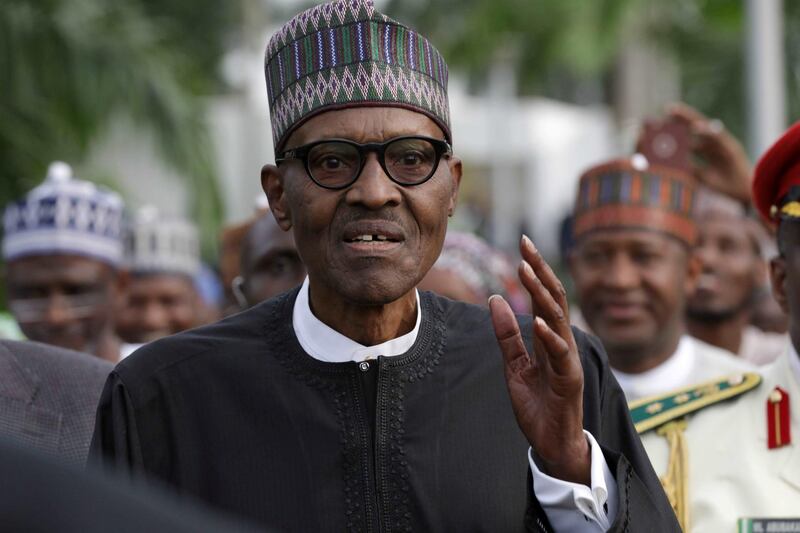Nigeria accused HSBC Holdings of money laundering after an analyst working for the lender said that a second term for President Muhammadu Buhari may stall economic recovery in Africa’s biggest oil producer.
“What killed Nigeria’s economy in the past was the unbridled looting of state resources by leaders, the type which was actively supported by HSBC,” presidential spokesman Garba Shehu said in a statement late Saturday. A bank that “continued until a few months ago to shield the stolen funds of one of the leaders of the Nigerian Senate has no moral right whatsoever” to criticize Mr Buhari, he said.
Nigerian investigations revealed that HSBC had laundered more than $100 million for Sani Abacha -- a military dictator who died in 1998 -- in Jersey, Paris, London and Geneva, Mr Shehu said. A spokesman for HSBC declined to comment.
Nigeria’s allegations against the London-based lender come almost two months after it published a research note saying that a win for Mr Buhari in February’s elections “raises the risk of limited economic progress and further fiscal deterioration, prolonging the stagnation of his first term.” The note was written by David Faulkner, a Johannesburg-based economist, on July 18, but was only widely publicised in Nigeria last week.
“With the coming of President Buhari, it is not a secret that corruption, corrupt individuals, banks and other corporate entities that aided corrupt practices are under investigation for various offenses,” Mr Shehu said in the statement. HSBC “is also suspected in the laundering of proceeds of corruption involving more than 50 other Nigerians.”
______________
Read More:
African elections add to oil market’s risks
______________
The Nigerian government is facing intense criticism of its economic management in the run up to the elections and several ruling-party lawmakers have defected to the opposition. Nigeria was battered by the 2014 slump in crude prices and its economy is still struggling.
The main opposition People’s Democratic Party said on 12 September that HSBC’s research showed a Buhari victory “portends grave danger” for the country.
“With the incoming election everybody is on edge and any analysis that is used to sway negative public opinion will be squashed as quickly as possible,” said Michael Famoroti, an economist at Lagos-based Vetiva Capital Management. “It’s possible the government is right in its claim but it completely missed the point because the issue HSBC raised had nothing to do with criminal or non-criminal activity. What is seen from their comments is that they don’t have the answers to the criticisms raised by HSBC.”
Regulators have long accused the world’s biggest banks of helping manage the illicit fortune amassed by Mr Abacha, who ruled Nigeria from 1993 until his death. In 2001, a UK financial watchdog said 15 lenders showed “significant control weaknesses” in handling $1.3 billion linked to him and his associates. In 2014, the US Department of Justice froze more than $458m in funds allegedly generated through corruption hidden in bank accounts -- including at HSBC, Citigroup and Deutsche Bank -- in what it described as the “largest kleptocracy forfeiture action” in its history.
HSBC has a representative office in Nigeria’s commercial capital of Lagos, but doesn’t operate a full banking unit in the country, unlike rivals such as Citigroup and Standard Chartered.






